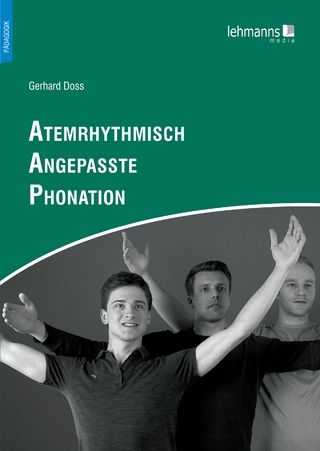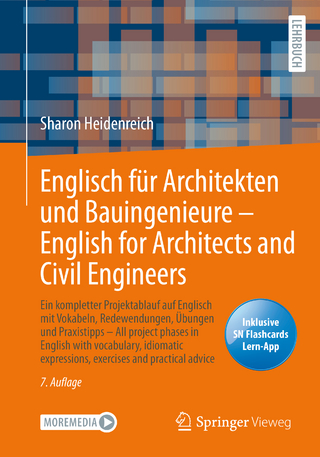
Compose Our World
Teachers' College Press (Verlag)
978-0-8077-6455-8 (ISBN)
Learn how to develop and sustain multimodal, project-based learning (PBL) instruction in secondary English Language Arts classrooms. National standards encourage authentic forms of reading, writing, and communication that can support college and career readiness, and this book highlights PBL as a powerful way to harness students' interests and engage them in academically rigorous learning. The authors provide specific, research-informed curricular approaches and instructional guidance for classroom teachers, as well as an overview of the dimensions of PBL that are often overlooked in the broad expectations of inquiry-based teaching. Instead of "quick fix" lessons, Compose Our World explores how core dimensions of equitable teaching—such as social and emotional support, universal design for learning, and cultivating classroom community—function as the bedrock for student success in PBL contexts and beyond.Book Features:
Based on the authors' extensive experience developing and studying a PBL curriculum.
Brings PBL to life through classroom vignettes and teacher and student voices.
Provides classroom resources that facilitate customization to unique contexts.
Shares ideas for developing teacher communities around PBL practices.
Offers additional curriculum materials online.
Appropriate for ELA teachers new to PBL, as well as veterans.
Alison G. Boardman is an associate professor in equity, bilingualism, and biliteracy in the School of Education at the University of Colorado Boulder. Antero Garcia is an assistant professor in the Graduate School of Education at Stanford University. Bridget Dalton is an associate professor in literacy studies at the University of Colorado Boulder. Joseph L. Polman is a professor of learning sciences and associate dean for research in the School of Education at the University of Colorado Boulder.
Contents (Tentative)
Foreword Richard Beach
Acknowledgments
Introduction: Introducing Compose Our World and the Pedagogical Possibilities of Project-Based Learning in English Language Arts
Project-Based Learning in English Language Arts
Compose Our World ELA-PBL Design Principles
Transforming Teachers by Shifting Curriculum
A Set of Curriculum Resources Based on the ELA-PBL Design Principles
How to Use This Book
Composing the Future
PART I: INTRODUCING THE COMPOSE OUR WORLD ELA-PBL DESIGN PRINCIPLES
1.;Authentic Making in English Language Arts
PBL in ELA as Authentic Making
Authentic Making in Action
Final Thoughts
2.;Learning and Engagement in Collaboration
What Is the Purpose of Collaboration?
How Do I Teach Collaboration?
What Structures Can I Use to Facilitate Productive and Equitable Collaboration?
Final Thoughts
3.;The Iterative Project Design Cycle
What Is the Iterative Project Design Cycle?
The Lifecycle of a Project
The Iterative Design Cycle in Action: The Throughlines Project
Final Thoughts About Iterative Design
4.;Attending to Teacher and Student Emotions and Care
Why Is There SEL in My ELA-PBL?
From SEL to CAPE
Caring
Advocacy
Empathy and Perspective-Taking
Bringing CAPE Into Your Classroom
Final Thoughts
5.;Strengthening PBL Through Universal Design for Learning and Multimodality
Unpacking UDL: What Is It and Why Does It Matter in ELA-PBL?
Reinventing Romeo and Juliet in an English, Theater Arts, and Science Interdisciplinary PBL Project
Multimodality and Digital Tools in an ELA Storytelling Project
Final Thoughts
PART II: PUTTING ELA-PBL INTO PRACTICE
6.;Building an ELA-PBL Classroom
Ms. Mattern’s Classroom: Where English Language Arts Becomes Project-Based
Integrating Text Into ELA-PBL
Incorporating ELA Skills Into PBL
Becoming an ELA-PBL Teacher
Final Thoughts
7.;Making Assessment Work in ELA-PBL
Assessment in English Language Arts Project-Based Learning
ELA-PBL Assessment: Principles and Practices
Final Thoughts
8.;Building a PBL Educator Community
What Is at the Center of PBL Educator Communities?
Our Version of Professional Learning Communities
Principles for Designing Community
What Structures Support Your PBL Community?
Designing Possible Futures for Our Classrooms, Together
Stay Playful
9.;Conclusion
Be Flexible, but Stay Focused on Your Purpose
Maintain Vulnerability, but Ensure Safety and Wholeness
What Does It Really Mean to Be an ELA-PBL Teacher?
Embrace the Minimum Viable PBL Practice
Support Students in Their Shift to PBL Learning
The Possibilities for ELA-PBL in a Changing World
Appendix A: Compose Our World Design Principles
Appendix B: Compose Our World 9th-Grade ELA Project Overviews
Appendix C: Criteria Protocol
Appendix D: Educator Check-in Survey
References
Index
About the Authors
| Erscheinungsdatum | 06.04.2021 |
|---|---|
| Reihe/Serie | Language and Literacy Series |
| Verlagsort | New York |
| Sprache | englisch |
| Maße | 152 x 229 mm |
| Gewicht | 438 g |
| Themenwelt | Schulbuch / Wörterbuch ► Wörterbuch / Fremdsprachen |
| Geisteswissenschaften ► Sprach- / Literaturwissenschaft ► Sprachwissenschaft | |
| Sozialwissenschaften ► Pädagogik ► Schulpädagogik / Grundschule | |
| ISBN-10 | 0-8077-6455-8 / 0807764558 |
| ISBN-13 | 978-0-8077-6455-8 / 9780807764558 |
| Zustand | Neuware |
| Haben Sie eine Frage zum Produkt? |
aus dem Bereich


